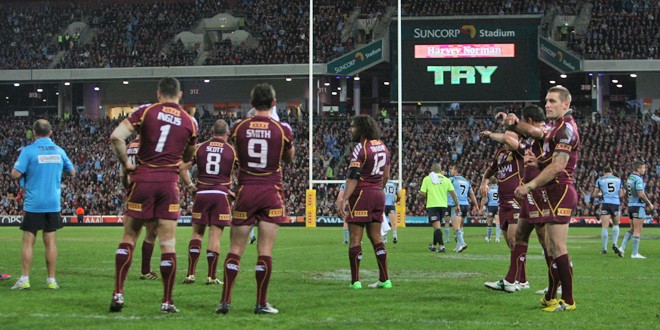 Rugby League on both sides of the world seems to be dogged by controversy about video referees.
And one issue that crops up again and again is that of obstruction, and whether a try should be awarded when there is a suspicion of obstruction.
In Australia last weekend there was a clear injustice, when North Queensland were narrowly beaten by M
Rugby League on both sides of the world seems to be dogged by controversy about video referees.
And one issue that crops up again and again is that of obstruction, and whether a try should be awarded when there is a suspicion of obstruction.
In Australia last weekend there was a clear injustice, when North Queensland were narrowly beaten by M Opinion: Take obstruction away from video referees
 Rugby League on both sides of the world seems to be dogged by controversy about video referees.
And one issue that crops up again and again is that of obstruction, and whether a try should be awarded when there is a suspicion of obstruction.
In Australia last weekend there was a clear injustice, when North Queensland were narrowly beaten by M
Rugby League on both sides of the world seems to be dogged by controversy about video referees.
And one issue that crops up again and again is that of obstruction, and whether a try should be awarded when there is a suspicion of obstruction.
In Australia last weekend there was a clear injustice, when North Queensland were narrowly beaten by M 